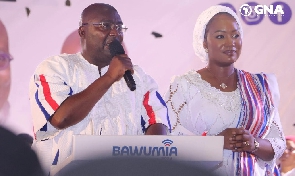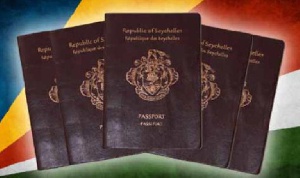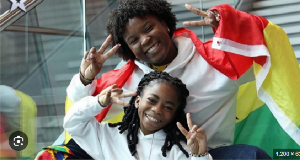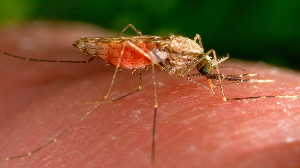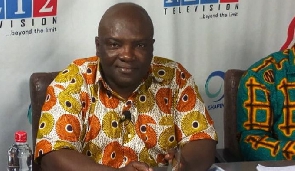Politics of Tuesday, 14 November 2023
Source: www.ghanaweb.com
The regional percentages: Why there is an ‘uneasy calm’ in the NPP after Dr Bawumia’s win
The results of the presidential primaries of the ruling New Patriotic Party (NPP), which was held on Saturday, November 4, 2023, appear to have raised serious questions in the ruling party.
Despite the ‘unprecedented’ victory of Vice President Dr Mahamudu Bawumia, the first Northerner to lead the NPP and the first Muslim to lead one of the two major political parties in Ghana, the margin of victory appears to have left some uneasiness in the party.
Dr Bawumia, who was regarded as the establishment candidate, who had the support of almost every government official, Member of Parliament (MP), constituency executive, regional executive and national executive of the party pulled 62 percent of the votes while Assin Central legislator Kennedy Agyapong, “the one-man commando”, pulled over 37 percent of the votes of the nearly 200,000 NPP delegates who took part in the primaries.
NPP Presidential Primaries Result

Many leading figures in the party, including the Deputy Speaker of Parliament and Member of Parliament (MP) for Bekwai, Joseph Osei Owusu, as well as the Majority leader and Member of Parliament for Suame, Osei Kyei-Mensah-Bonsu, all supporters of Bawumia, have indicated the results of the primaries show that the NPP has more work to do because Ghanaians are not happy.
The affirmation Dr Bawumia got from NPP delegates in some of the regions even led to more questions as to whether the people of Ghana are going to vote for the vice president if his own party members did not vote for him overwhelmingly.
In Akan-dominated areas, which are largely strongholds of the ruling NPP, Dr Bawumia was expected to make a statement with a resounding victory as a show of support for the Akufo-Addo government but he barely got the support of 60 percent of the party’s delegates.
Ashanti Region:
In the Ashanti Region, which is regarded as the “World Bank” of the NPP, for instance, only over 65 percent of NPP delegates believe that Dr Bawumia can lead the country.

Eastern Region:
The vice president could not even get 70 percent of the votes from delegates in the home region of President Nana Addo Dankwa Akufo-Addo, even though he was seen as the ‘establishment candidate’ and a massive win would be a strong statement of support for the current government.
Dr Bawumia got the affirmation of nearly 66 percent of NPP delegates in the Eastern Region. Ken got over 33 percent of the votes, with the remaining contenders getting 0.3 percent each.

In other Akan-dominated regions, which are not regarded as NPP strongholds, Dr Bawumia's votes were better.
Ahafo Region:
In the Ahafo Region, Dr Bawumia got more than 75 percent of NPP delegates believing that Ghanaians would vote for him if he was the candidate of the party in the 2024 general elections.

Bono Region
The vice also did well in the Bono Region, getting approximately 76 percent of the delegates in the region affirming his candidature.

Bono East Region:
Here also Dr Bawumia got over 75 percent of NPP delegates affirming him.

In the Fante-dominated areas, which are regarded as swing areas, Dr Bawumia’s affirmation was even below the national average of 61.4 percent
Western Region
In the Western Region, for instance, the vice president got under 60 percent of NPP delegates believing he would win them, the 2024 elections.

Western North Region
In the Western North Region, he got almost 59 percent of NPP delegates saying he is their man.

Central Region
In the Central Region, the home region of his main contender in the race, Kennedy Agyapong, Dr Bawumia did not get even 40 percent of the delegates believing in him. Ken got over 63 percent of the delegates voting for him with Bawumia getting a little over 36 percent.

Votal Region
The Votal Region, the “Word Bank” of the opposition National Democratic Congress (NDC), Dr Bawumia bragged about getting more votes for the NPP, was the second region he lost.
The vice president got a little over 45 percent of the votes from NPP delegates in the Volta Region with Ken winning the region with over 53.1 percent.

Greater Accra Region
The votes from delegates in the Greater Accra Region were nearly split between Dr Bawumia and Ken Agyapong.

The northern part of Ghana turned up from their son, with the vice president winning the 5 regions there convincingly (over 80 percent in 3 of the 5 regions).
Northern Region
Dr Bawumia won more than 80 percent of the votes in the Northern Region with Ken getting a significant 17.4 percent.

Savannah Region
The vice president won the Savannah Region with approximately 70 percent of the vote from the delegates.

North East Region:
In his home region, Dr Bawumia got also all the delegates confirming him to be the presidential candidate of the NPP.
He pulled 99.1 percent of the vote; Ken got 0.7 percent with the rest getting 0.1 percent each.

Upper East Region
In the Upper East Region, Dr Bawumia got almost 69 percent of the delegates affirming him. But Ken did relatively well with about 28 percent of the votes.

Upper West Region
Dr Bawumia also won the Upper West Region with 78.5 percent, Ken got a significant 17.4 percent.

Oti Region:
The vice president also won the Oti Region ‘convincingly’ with over 72 percent of the delegates affirming his candidature.

To conclude, the result of the NPP presidential primaries shows that the ruling party has a lot of convincing to do if it wants to really win power for an unprecedented 3rd successive term – break the 8, as they say.
BAI/OGB
Watch the latest episode of Everyday People below:
Ghana’s leading digital news platform, GhanaWeb, in conjunction with the Korle-Bu Teaching Hospital, is embarking on an aggressive campaign which is geared towards ensuring that parliament passes comprehensive legislation to guide organ harvesting, organ donation, and organ transplantation in the country.

